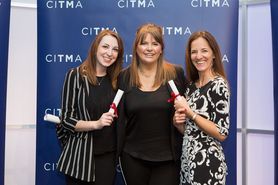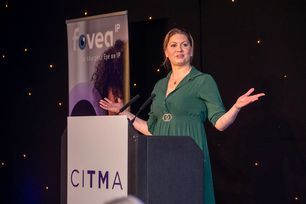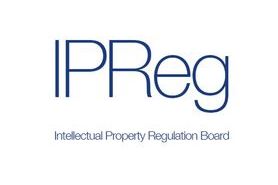Trade Mark Attorney qualification route
Whilst qualifying as a trade mark attorney can be challenging and take a number of years, mixing study with working in private practice or in-house, a career in the profession can be both intellectually stimulating and rewarding.

There is no one-size-fits-all route to becoming a trade mark attorney and the good news is that there are several options available that cater for prospective candidates from all backgrounds and there are a number of first postgraduate course and all of these provide an excellent track record of pass rates.
Registered and Charerted Trade Mark Attorneys
Just like 'barrister' or 'solicitor', 'Registered Trade Mark Attorney' is a title protected by law. To call yourself one, you will need to take a certain set of qualifications.
The qualifications are overseen by the Intellectual Property Regulation Board (IPReg), the governing body for trade mark attorneys.
Once qualified you can apply to be entered onto the Register of Trade Mark Attorneys, maintained by IPReg, only then can you call yourself a Registered Trade Mark Attorney.
In order to call yourself a Chartered Trade Mark Attorney (CTMA) you need to be entered onto the Register of Trade Mark Attorneys and be an Ordinary member or Fellow of CITMA.
Getting started
Do you need a legal background? The simple answer is no. Potential employers looking to take on a trainee will often require potential employees to have a good undergraduate degree, often a 2:1 or better. This does not necessarily need to be in law, other degrees are also valued too. However, having a law degree can be an advantage, as it will exempt you from some modules of the qualification courses.
It is also possible to become a CTMA without a degree provided you have the relevant experience working in the profession.
Becoming a trainee
The first step for most aspiring CTMAs is to be taken on as a trade mark trainee at a legal firm. Your firm will then usually pay for you sit the required qualifications.
Firms come in all shapes and sizes. Many firms operating within the profession specialise in intellectual property work. Plenty of large 'full-service' law firms have sizable IP departments too.
You will also find trainee CTMAs working 'in-house' for large companies.
Look out for opportunities at careers fairs, graduate job websites, our jobs board or directly via firms with an active IP practice.
You will work in your trainee role when you are not studying, usually shadowing an experienced CTMA. You will work closely with your mentor to gain the experience you need to qualify.
Qualification one
The first qualification you will need to complete will provide you with a firm grounding in IP law and practice that you will need in your career as a CTMA.
There are a number of courses available which can give you the flexibility to choose an option that suits you, however most firms or companies will have a preferred option if they are sponsoring you.
The courses run anywhere from four months to a year and usually start alongside the academic year in September.
The courses are:
- Postgraduate Certificate Course In Trade Mark Law at Queen Mary in London
- Postgraduate Certificate Course In Intellectual Property Law at Queen Mary in London
- Postgraduate Certificate Intellectual Property at Bournemouth University
- Postgraduate Certificate Intellectual Property Law at Brunel University in London
Our 'Course Correct' guidance will give you an overview of the options, entry requirements and things to think about when making your choice.
Qualification two
Once you have passed the first qualification, you will be eligible to sit the Professional Certificate in Trade Mark Practice at Nottingham Law School.
This course is specifically designed to build on the knowledge gained in the first year of study and to develop the professional skills needed to be a CTMA.
The course runs from October to July and is delivered in intensive spells of a few days every four to six weeks.
Exemptions
Several universities offer postgraduate certificate or LLM courses in intellectual property law, which provide candidates with part-exemptions from these courses.
If you are a qualified solicitor or barrister you will be exempt from a number of the modules, depending on the extent of your IP experience.
Two years' experience
As well as the two qualifications, you need to complete two years' work experience in trade mark legal practice to qualify as a trade mark attorney.
You would normally do this while you are studying at the law firm or company who has taken you on as a trainee and under the guidance of an experienced mentor.
Becoming Chartered
Once qualified and entered onto the Register of Trade Mark Attorneys you can apply for Ordinary membership of CITMA, to become Chartered.
Since CITMA gained Chartered status in 2016, the term has become synonymous with the quality of service our members provide.
Litigation
CTMAs have rights to conduct litigation and appear in court on their client's behalf. There are three levels of litigation rights.
- The Intellectual Property Litigation Certificate
This is the basic level of rights all CTMAs hold. It allows them to conduct appeals in the High Court, litigation in the Intellectual Property Enterprise Court (IPEC) and appeals of the aforementioned cases in the Court of Appeal and Supreme Court.
It also grants a right of audience in the IPEC and, on appeals from the IPO, in the High Court.
IPReg expects you to take the Certificate in Intellectual Property Basic Litigation Skills at Nottingham Law School within three years of qualifying. This module is now included in the Nottingham Law School Professional Certificate in Trade Mark Practice.
- Higher Courts Litigation Certificate
This gives holders the ability to commence and conduct litigation in the High Court. This is gained by completing an Advanced Litigation Skills Course.
- Higher Courts Advocacy Certificate
This is equivalent to the combined rights of a barrister and solicitor in IP cases. It gives the holder full rights of audience in IP cases in all English courts.
This is gained after completing an Advocacy Skills Course.
















